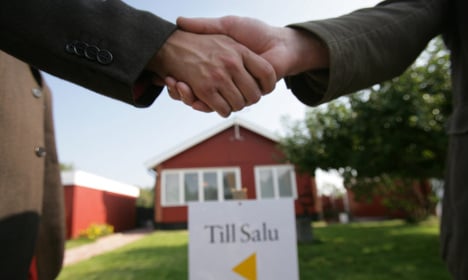“The police report was filed last week. It was because of what happened,” said HQ spokesperson Madeleine Bruce-Martinsson to the TT news agency.
“He had responsibility for the way the trading portfolio has been managed. We want to have a public agency investigate if it amounts to actions of a criminal nature. Our own investigation revealed actions that the board can’t explain. That’s why we want an independent investigation.”
The “actions” are, according to Bruce-Martinsson, securities deals that don’t appear to have been carried out properly, which are of a “criminal nature”.
She added that HQ hasn’t discussed reporting any additional individuals to the police.
The Swedish Economic Crimes Authority (Ekobrottsmyndigheten – EBM) has already launched a preliminary investigation in suspected aggravated accounting fraud and racketeering at HQ Bank.
“In the investigation by the Swedish Financial Supervisory Authority (Finansinspektionen – FI), which EBM has reviewed, it states that there is reason to believe that HQ Bank, in their accounting, put false information about the value of their trading portfolio,” prosecutor Berndt Berger told TT at the time of the preliminary investigation.
HQ has no plans to release the results of its internal investigation, which is being conducted by attorney Anders Malm, until it is completed.
“His report is in the process of being completed and will be published on September 27th at the latest,” said HQ’s Bruce-Martinsson.
The Financial Supervisory Authority revoked HQ’s licence August 28th claiming that risky securities deals carried out by the bank’s trading department threatened HQ’s survival.
On August 30th, the bank was put into involuntary liquidation, only to be purchased by Carnegie on September 3rd.





 Please whitelist us to continue reading.
Please whitelist us to continue reading.
Member comments